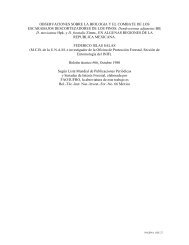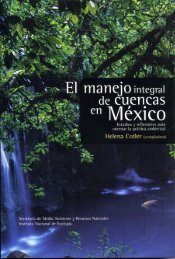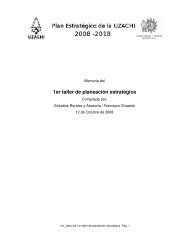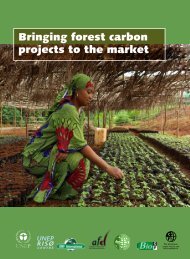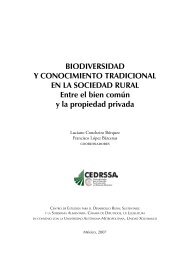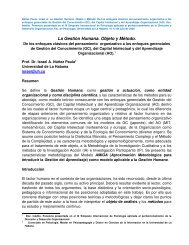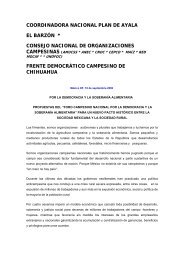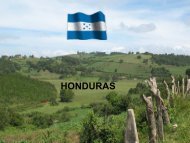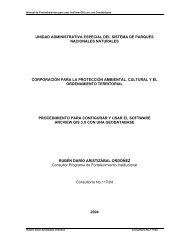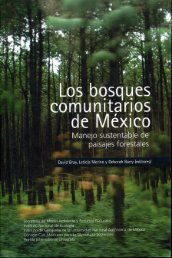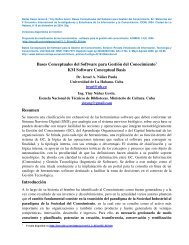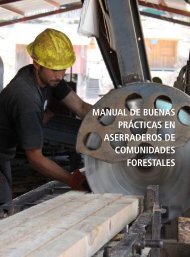STATE OF THE WORLD's INDIGENOUs PEOpLEs - CINU
STATE OF THE WORLD's INDIGENOUs PEOpLEs - CINU
STATE OF THE WORLD's INDIGENOUs PEOpLEs - CINU
- No tags were found...
You also want an ePaper? Increase the reach of your titles
YUMPU automatically turns print PDFs into web optimized ePapers that Google loves.
EMBARGOED UNTIL 14 January 2010<strong>STATE</strong> <strong>OF</strong> <strong>THE</strong> WORLD’S INDIGENOUS PEOPLESNot for distributionThe principal human rights effects of these projects for indigenous peoples related to lossof traditional territories and land, eviction, migration and eventual resettlement, depletionof resources necessary for physical and cultural survival, destruction and pollution of thetraditional environment, social and community disorganization, long-term negative health andnutritional impacts as well as, in some cases, harassment and violence. 55In this particular discussion of large-scale development projects, there was also reference to the impact oflarge dam projects upon indigenous communities in Colombia. Unfortunately, in this case, the human rightsviolations became so grave as to include forcible removal from homes and lands, destruction of property as wellas assassinations and disappearances carried out by paramilitary forces.The Special Rapporteur has noted other similar dam projects and the resulting violations of indigenous peoples’human rights. Forced removal, clear-cutting of forests, military abuses, and deaths and disappearances aretaking place in India, the Philippines, Panama, the United States, Canada, Malaysia, Costa Rica and Chile. Thisis not an exhaustive list—such cases are only the known violations based upon communications to the SpecialRapporteur or the Office of the High Commissioner for Human Rights. It is highly likely that many other cases havenot been reported or communicated to the UN or any other agencies.Other development projects being imposed or forced upon indigenous communities include logging, mining,resort developments and highway construction, establishment of national parks and reserves as well as oil andgas exploration and exploitation. For example, in the Russian Far East, little or no consideration has been givento the indigenous peoples’ demands to safeguard their hunting, fishing and gathering territories in the face of oiland gas development. 56 These cases arise as urgent measures primarily due to the fact that state governmentshave not even established the ways and means for indigenous peoples to bring claims to gain any recognition oraffirmation of their distinct rights to own and control their lands, territories and resources.More recently, leaders of the Ardoch Algonquin First Nation (Canada) have had legal action taken against themfor their efforts to block uranium exploration and mining on lands that have been claimed by the Algonquins. 57The lack of procedures to identify and affirm indigenous land rights is exacerbated by the imposition of major,adverse developments that favour others, such as multinational corporations, and “criminalize” indigenouspeoples’ protests. The rampant actions of large economic and corporate forces often appear to go unrestrainedby governments, who are ultimately responsible for the prevention of violations and abuses of indigenous humanrights by third parties.Discrimination against indigenous peoplesIndigenous peoples frequently raise concerns about systemic discrimination and outright racism fromthe State and its authorities. This discrimination manifests itself in a number of ways such as frequentand unnecessary questioning by the police, condescending attitudes of teachers to students or rudenessfrom a receptionist in a government office. At their most extreme, these forms of discrimination lead togross violations of human rights, such as murder, rape and other forms of violence or intimidation. Theseforms of discrimination are often either difficult to quantify and verify or are simply not documented by theauthorities, or not disaggregated based on ethnicity.55Stavenhagen (2003), 2.56Stavenhagen (2003), para. 68.57“Ontario Algonquins suspend uranium site occupation”, Friday, October 19, 2007, CBCNews.ca.HUMAN RIGHTS | 205




